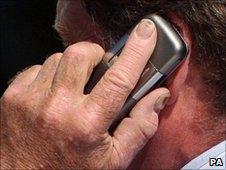EU mobile phone charge cap is legal
- Published

The price of calls between European Union countries will remain capped
Caps on mobile phone call charges made while travelling within Europe will stay in place after four phone giants failed to have them overturned.
The four - Vodafone, T-Mobile, Orange and Telefonica O2 - challenged rules put in place by the EU in 2007.
These put a maximum limit on charges for calls and other mobile services.
The EU said that by 2011, the maximum charge for making an inter-Europe call would be 35 euro cents (29p) and for receiving a call, 11 cents.
These charges apply to customers who are in one of the 27 European Union countries but out of their home network and therefore passing through a rival system.
The price limits are made up of restrictions on what the companies charge their customers - the retail price - and what they charge each other for carrying calls of customers of other networks - the wholesale price.
The phone giants argued their case before the European Court of Justice, saying that the European Parliament went too far in setting the retail price cap as well as a wholesale price cap.
But the court said that the object of the regulation was appropriate and necessary for the purpose of protecting consumers against high levels of charges. Before the ruling, retail charges were as much as five times the wholesale price.
Before 2007, a call in the EU could cost 2.50 euros a minute in certain countries.
Price limits are now also in place for sending and receiving other data via mobile phones, such as texts and images.